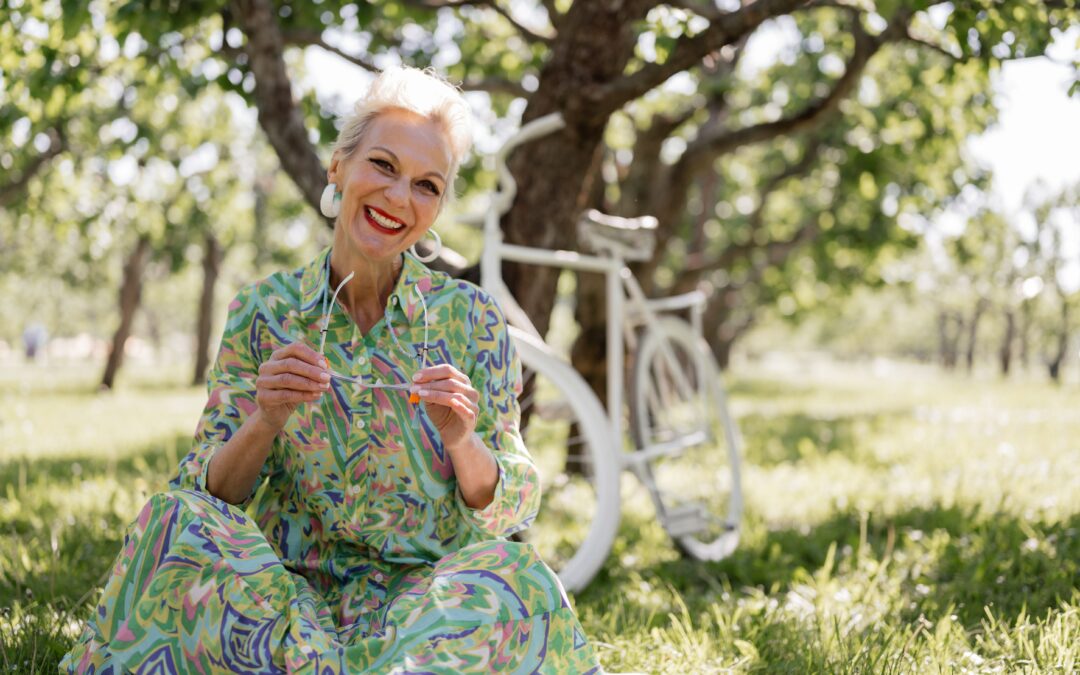Taking care of your mental health is just as important as your physical health. In fact, the mind and body are so connected that when your mental health suffers, it isn’t uncommon to manifest symptoms in the form of sickness and stress. Many seniors are so used to taking care of others their own needs tend to get neglected. They may even view self-care as a form of selfish indulgence. It is important to know routine self-care plays a big role in making sure you develop good mental habits that contribute to better physical, mental, and emotional health and well being.
Here are 5 ways that self-care impacts your mental health in a positive way.
- Greater self-awareness: When you allow yourself to practice self-care on a routine basis, you become more in touch with yourself – your feelings, emotions, things you like and don’t like. It allows yourself to listen to your body and know your needs. You may even notice a want to connect with old hobbies and a yearning to discover new interests. When you start giving your mind and body the care you deserve, a world of possibility opens up because you become comfortable and know who you truly are.
- Positivity: Self-care is all about bringing positive change to your life. Now that you are able to slow down you can be more intentional with your time. Try doing something you enjoy everyday. This could be dancing, watching your favorite show, working in your garden, or reading a book. The more you put yourself first, the better you’ll feel and the more confident you’ll become. With that confidence comes a more positive outlook on life.
- Less Stress: We aren’t always able to avoid stress in the fast paced, chaotic world we live in. However, we can make it a little easier to handle by allowing self-care to be a part of our daily routine. You can take care of your mind and body by getting enough sleep, regular exercise, and eating healthy. Take note of things that help you relax such as meditation, yoga, getting a massage, or taking a warm bubble bath. Add these relaxing checkpoints into your schedule. Think of your emotional health as a cup. The more self care items you check off the list the more your cup fills. That way when you are dealing with stressful situations you won’t deplete your resources, you’ll have reserves to get you through even the hardest time.
- Healthier Relationships: Self compassion. Healthy relationships are crucial for retirees. How else can you combat loneliness than going through life with someone by your side? We are taught to love others, but no one talks about loving yourself. The less you love yourself, the more toxic your relationships will be. This is why self-care is so important – it’s the act of showing yourself love in simple little ways, every single day. Be kind to yourself, give yourself grace. Slow down when your body tells you and ask for help when you need it. Recognize you’ve only got one you so you must take care. By doing this, you’ll start to embrace who you are, and you’ll attract people who mirror that. With a little self-care, you’ll be able to give the best possible version of yourself to every relationship you have.
- More Confidence: Your confidence level is determined by how you feel about yourself and your situation. Those who put others’ needs before their own tend to suffer their confidence. Think back to the cup. If your cup is empty, how can you fill anyone else’s? Pay attention to your self-talk. Affirm yourself, you are worthy, you are loved, you are good, you are deserving. When you make time for things you enjoy and place your own well-being at the top of the priority list, you’ll be happier and more self-assured. Practicing self-care produces positive feelings and helps you maintain a healthier, more confident relationship with yourself and others.
When you take care of your mental health, through routine self-care, the positive effects ripple down through every area of your life and make a huge impact on the direction your life will take. Be proactive about your emotional health. Even if you are feeling positive, it’s great to have someone to talk to. This could be a friend, a minister, a counselor, someone you trust to share life with. They could be a major source of support.


